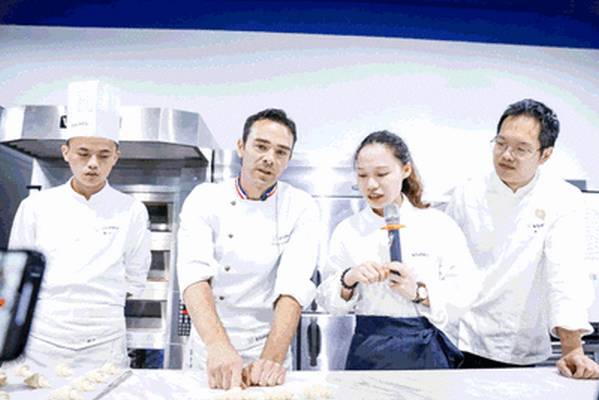- A+
小学英语学初级中学英语习的重点是对听说读写的基本训练,需要掌握一定的词汇和最初级中学英语基本的语法知识。为初级中学英语了方便同学们的学习,现初级中学英语将小学阶段?考的重点知初级中学英语识点总结如下:
一、基本词汇及固定初级中学英语搭配用法
1.go 初级中学英语 的用法。意思是“去做……”如:go to school;go home;go swimming ;go fishing ;go skating 初级中学英语 ;go 
camping ;go shopping等。
2.lik初级中学英语 e用法!。“喜欢做某事”用like + 动词ing 初级中学英语 或like+ to + 动原。
如:Kate likes 初级中学英语 dancing, but she doesn’t 初级中学英语 like to dance now.
3. would like +to+ do或want+ to + 初级中学英语 do“想要做某事”
例:Would you like 初级中学英语 to play basketball with me?.=Do 初级中学英语 you want to play basketball with me?
4.som初级中学英语 e“一些”,用初级中学英语于肯定句中,在否定句和问句中改为a初级中学英语 ny,但当表示初级中学英语委婉语气,或者希望得到对方肯定回答初级中学英语的时候仍用some。
如:Can I have some 初级中学英语 milk?Would you like some 初级中学英语 orange juice ?
5. 初级中学英语 excited,exciti初级中学英语 ng激动兴奋的。
-ed表初级中学英语示激动的,兴奋地主语是人;-ing表示令人激动初级中学英语的,令人兴奋的主初级中学英语语是事情
如:The running race is very 初级中学英语 exciting,so all the 初级中学英语 students are very excited.
赛跑非常令人激动初级中学英语,因此所有的学生都很激动初级中学英语。
6. Worry 初级中学英语 about,be worried 初级中学英语 about令人担心的
Don’t worry about me. He is worried about his 初级中学英语 English.
7. get 初级中学英语 to“到达
”需要注意的是home, 初级中学英语 here, 初级中学英语 there等副词前不加to,如:get home ;get here ;get there另外go home 初级中学英语 ;come here ;go there 用法一样。
8. 初级中学英语 with和in的用法。
长着什么用with如:the girl with big eyes 大眼睛的女初级中学英语孩;
穿着什么用in如:初级中学英语the boy in black 穿黑衣服的男孩子
9. let用初级中学英语法!。“让某人做初级中学英语某事”let sb do
如:Let’s fly 初级中学英语 a kite.
10.It’s time for+ 名词或It’s time to 初级中学英语 +do“是该做…… 的时候了”, 如:It’s time to go 初级中学英语 home.
11.help sb with sth“帮助某人做某事初级中学英语”
如:He often helps me 初级中学英语 with my English.
12. 时间表示法有两种:初级中学英语
1初级中学英语)直接读时钟和分钟。如9:10读成nine ten 初级中学英语 ;
2)用to 与past 初级中学英语 表示。
在半小时包括半小时以内用几分past 初级中学英语 。如:6:10 读成ten past six ;7:3初级中学英语0 读成half past seven ;过了半小时,用下一个钟点差几分如7:初级中学英语45读成a quarter to eight;
1初级中学英语3.both 表示两者都,all 初级中学英语 表示三者以上都。
如:初级中学英语My parents are both workers.The students are all from China.22.have,has初级中学英语
14.表初级中学英语示某人有
have(has 用于第三人称单数);
表示某地存在有There is/ are ;There was/ 初级中学英语 were。
注意There be 句型的初级中学英语就近原则单数或不可数用there is /was ;
复数用there are/初级中学英语 were.
二、基础语法初级中学英语点
1. 冠初级中学英语词:不定冠词a/an用法;定冠词the的用法。五个初级中学英语元音字母: ;
a 用于辅音初级中学英语音素前,(不初级中学英语是辅音字母前);如:There is a‘u’in the word study .
an 初级中学英语 用于元音音素前,(不是元音字母Aa初级中学英语 ,E初级中学英语 e,I初级中学英语 i,O初级中学英语 o,U初级中学英语 u前)。例初级中学英语如:“一个S”,可以初级中学英语说成“an s”.
球初级中学英语类之前不加the ;play football;乐器之前必须加the如:play the piano。
2.名词复数构初级中学英语成的方法有规则的有:
1)直接在名词后加s如book—books 初级中学英语 ;pen—pens ;
2初级中学英语)以x,s初级中学英语 ,s初级中学英语 h,ch 结尾的加es如:box — boxes ;glass —glasses ;watch—watches 初级中学英语 ;
3)以辅音字母加y 结尾的改y为i 加es如:study—studies 初级中学英语 ;library—libraries ;
4初级中学英语)以f,fe 结尾初级中学英语的改f,fe 为v + es 初级中学英语 如:knife—knives ;
5)以o 初级中学英语 结尾的,有生命的加es 初级中学英语 ,tomato—tomatoes;没有生命初级中学英语的加s,如photo—photos;初级中学英语
不规则变化:初级中学英语man—men 
;woman—women ;child—children
3.基数初级中学英语词变序数词的方法基变序有规律,结尾加上初级中学英语th ;变化口诀:
一二三特殊例初级中学英语, 结尾字母t.d( 初级中学英语 即first,se初级中学英语 cond,third)初级中学英语;
八初级中学英语去t,九去初级中学英语e,ve 要用f 替(即初级中学英语eight—eighth ;nine—ninth ;five—fifth ;twelve—twelfth);改y 为ie 后加th 别忘记( 即整十数如twenty—twentieth ;forty—fortieth
几十几十位为基个位为序(如初级中学英语第二十一为twenty-first)。
另外强调序数词前一定要加初级中学英语the。
4初级中学英语. 代词
人称代词初级中学英语主格I,yo初级中学英语 u,h初级中学英语 e,s初级中学英语 he,i初级中学英语 t,w初级中学英语 e,yo初级中学英语 u,the初级中学英语 y做主语时,一般放初级中学英语在句首或动词前。
宾格m初级中学英语 e,you初级中学英语 ,h初级中学英语 im,her初级中学英语 ,i初级中学英语 t,u初级中学英语 s,you初级中学英语 ,them作宾初级中学英语语时,一般放在初级中学英语动词或介词后。如:Give 初级中学英语 me the book. 等。
形容词性初级中学英语物主代词my,yo初级中学英语 ur,his初级中学英语 ,h初级中学英语 er,it初级中学英语 s,our初级中学英语 ,yo初级中学英语 ur,their不初级中学英语能单独使用,要放在名词前;名词性物主代词mine初级中学英语 ,you初级中学英语 rs,his初级中学英语 ,he初级中学英语 rs,it初级中学英语 s,ou初级中学英语 rs,yo初级中学英语 urs,theirs相当于形物初级中学英语加名词,举个例子:My 初级中学英语 book is here, 初级中学英语 yours is there.这里的yours相当于your book。
5初级中学英语.介词
On:具体的某年某初级中学英语月某日用on。如:on Monday ;on a cold 初级中学英语 winter morning
有day 的节日前用on.如:on Christmas Day ;on 初级中学英语 New Year’s Day.
In:初级中学英语在上下午晚上用in 如:in the morning/ afternoon/ evening ;季节前,月份前用介词in 初级中学英语 ,
如:in summer ;in 初级中学英语 March。
At:在几点钟前用介词at 初级中学英语 如: at a quarter to four ;在夜间用at night。关初级中学英语于节日的表示没有day 的节日前用at,如:at Christmas ;at New 初级中学英语 Year ;小地点用at,at 初级中学英语 the bus stop,at 初级中学英语 school等。
6. 初级中学英语 动词第三人称单数的构成
1)直接在动词后初级中学英语加s;如:dances
2)以s初级中学英语 ,sh初级中学英语 ,ch初级中学英语 ,o 初级中学英语 结尾的加es;如:goes
3)以辅音字母加y 结尾的改y为i 加es;如:studies 初级中学英语 ;
7.初级中学英语 现在分词的构成
1)直接在动词后初级中学英语加ing;如:singing ;
2)双写词尾加ing如:swimming 初级中学英语 ;
3)以不发音的e 结尾的去e 初级中学英语 加ing如:dancing ;
8. 规则动词过去初级中学英语式的构成
1)直接在动词后加ed;如:played 初级中学英语 ;
2)以e 结尾的直接加d;如:初级中学英语danced ;
3)以辅音字母加y 初级中学英语 结尾的改y为i 加ed;如:studied ;
4初级中学英语)双写词尾加ed;如:stopped ;
需要掌握的初级中学英语不规则的有:am,is—was 初级中学英语 ;are—were ;do,does—did 初级中学英语 ;have,has—had 初级中学英语 ;
go—went ;初级中学英语meet—met ;sit—sat ;see—saw ;get—got ;run—ran ;come—came ;
steal—stole ;read—read 初级中学英语 ;
9. 形容词副词比较级的构成规则的初级中学英语:
1)直接在形容词或副词后加er 如;small—smaller 初级中学英语 ;low—lower ;
2)以e 结尾的加r 初级中学英语 如:late—later ;
3)双写词尾加er 如:big—bigger ;thin—thinner ;fat—fatter 初级中学英语 ;
4)以辅音字母加y 结尾的改y 为i 加er 如:heavy—heavier 初级中学英语 ;early—earlier ;
不规则的有初级中学英语:
goo初级中学英语 d,well—better ( 初级中学英语 最高级为best);many,much—more(最高级为most);far—farther 初级中学英语 ;
10.初级中学英语 时态
小学英语涉及到的时态初级中学英语有,一般现在时、现在进行时、一般将初级中学英语来时、一般过去时这四个时态,同学们可以根据课文中的例初级中学英语句理解即可。
此外初级中学英语,学会使初级中学英语用can,can初级中学英语 ’t,shou初级中学英语 ld,shoul初级中学英语 dn’t,mu初级中学英语 st,may 等情态动词后初级中学英语一定加动词原形的用法。以及肯定祈使句以动词原形开头;否定祈使句初级中学英语以don’t 加动词原形开头。




